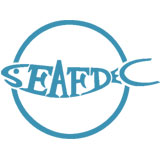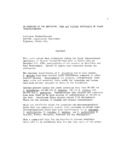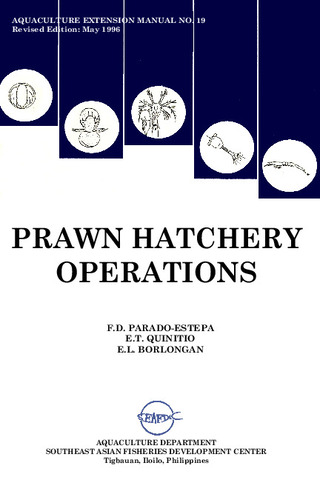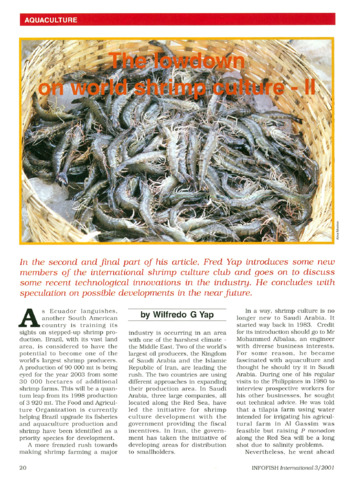Survival of Penaeus monodon postlarvae and juveniles at different salinity and temperature levels.
Share
Abstract
Penaeus monodon postlarvae (PL1, PL5, PL10, and PL15) and juveniles (0.2 and 2 g mean weights) were acclimated gradually within 6 h to test temperatures of 22°, 28°, and 33°C. After 24 h, the postlarvae were abruptly transferred to salinity levels of 8, 16, 24, 32, 40, or 50 ppt, and juveniles to 0, 4, 8, 16, 20, 24, 28, 32, 40, 50, or 60 ppt. All test animals were previously reared in 32 ppt sea water at a temperature of 27-29°C. Survival rates were compared after four days for PL1, PL5, and PL 10, and 10 days for PL 15. Tests for juveniles lasted seven days. Length and total (TPI) or mean (MSI) population stage indices were compared for postlarvae.
Survival rates of postlarvae and juveniles were generally lower at 33°C. Length and MSI of postlarvae were higher at 33°C than at 22°C. TPI at PL10 and PL15 were not significantly affected by salinity. Optimal salinity ranges for postlarvae and juveniles were identified based on the different parameters measured.
Suggested Citation
Parado-Estepa, F. D. (1998). Survival of Penaeus monodon postlarvae and juveniles at different salinity and temperature levels. The Israeli Journal of Aquaculture-Bamidgeh , 50(4), 174-183. http://hdl.handle.net/10862/1844
Subject
Taxonomic term
Collections
- AQD Journal Articles [1248]
Related items
Showing items related by title, author, creator and subject.
-
An overview of the nutrition, feed and feeding techniques of prawn penaeid/shrimps
Piedad-Pascual, Felicitas (Philippine Council for Aquatic and Marine Research and Development, 1989)This paper echoes what transpired during the first International Conference of Penaeid Prawns/Shrimps held in Iloilo City in December 4-7, 1984, particularly on the Nutrition nd Feed Development. Around 25 papers were ... -
Prawn hatchery operations
Parado-Estepa, Fe D.; Quinitio, Emilia T.; Borlongan, Emeterio L. (Aquaculture Department, Southeast Asian Fisheries Development Center, 1996-05)The manual, an updated version of the 1984 SEAFDEC/AQD manual, presents the underlying principles and step-by-step instructions of prawn larval and post-larval rearing. The techniques described are not only applicable to ... -
The lowdown on world shrimp culture - II
Yap, Wilfredo G. (INFOFISH, 2001)This paper introduces some new members of the international shrimp culture club and goes on to discuss some recent technological innovations in the industry, particularly the polyculture of tilapia (mainly Oreochromis ...






